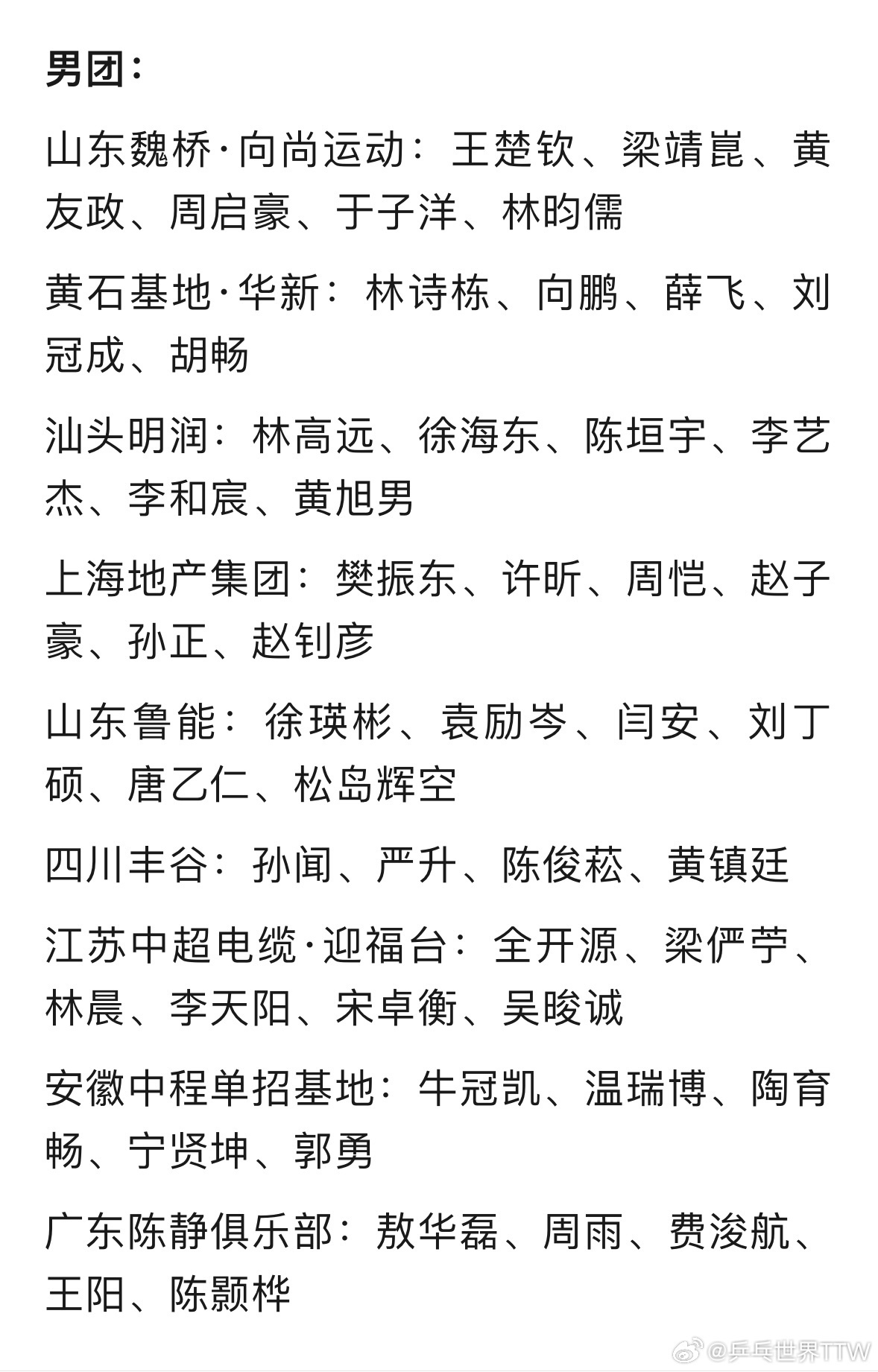Rethinking the consequences of U.S. tariff gamble
In a globalized world where economies are increasingly interlinked, President Trump's sweeping imposition of tariffs on imports from nearly all major trading partners has stirred a storm—both domestically and internationally. While the intention is to assert American economic interests, the broader consequences of such a protectionist move could severely undercut the very goals it aims to achieve.。
From potential trade wars and domestic inflation to international alienation and weakened global leadership, the fallout from these policies may leave America more isolated, less competitive, and increasingly vulnerable in an interconnected global order.。

Tariffs in theory vs. reality。

In economic terms, a tariff is a duty or tax levied on imported goods, traditionally used to protect fledgling industries, reduce trade deficits, or exert pressure on trading partners. Historically, countries like the U.S. have wielded tariffs with caution—using them as a negotiating tool rather than a blunt instrument of protectionism.。

But today's context is different. The U.S. is no longer a manufacturing-heavy economy. Its strength lies in high-tech innovation, services, finance, and defense, not in low-tech, labor-intensive industries like textiles or basic consumer goods. Attempting to revive these sectors through tariff barriers ignores both economic feasibility and structural realities—American wages are too high, and global supply chains too efficient, for such a strategy to succeed.。
A unilateral decision with limited consensus。
Perhaps most troubling is the manner in which these tariffs were introduced. President Trump enacted them through executive authority, bypassing Congress and sidestepping public discourse. Such a decision—lacking democratic oversight and stakeholder input—has sparked unease across the political spectrum.。
Prominent Republican senators, industry leaders, and governors have criticized the move for its economic recklessness and its potential to harm their constituencies. Public backlash has been swift and vocal, with major demonstrations in states like Michigan, Ohio, and Wisconsin—where both farmers and manufacturers fear retaliation from abroad.。
Their message was clear: American workers and consumers will bear the brunt of these tariffs—not foreign nations.。
Who really pays for tariffs?
Despite political rhetoric, tariffs are not paid by foreign exporters. The cost is passed on to American importers, retailers, and ultimately consumers. Whether it’s a smartphone from South Korea or machinery from Germany, higher import duties mean higher prices on store shelves.。
A recent analysis by the U.S. Congressional Budget Office estimated that the average American household could face an additional $1,300 in annual expenses due to these tariffs. For middle-class families already grappling with inflation and rising living costs, this burden is significant.。
Moreover, small businesses—which form the backbone of the U.S. economy—are disproportionately affected. Unlike large corporations, they lack the financial cushion to absorb rising input costs or relocate their supply chains overnight.。
Global reaction: Allies alarmed, rivals energized。
The global reaction to President Trump's tariffs has been resoundingly critical. Traditional U.S. allies have expressed deep disappointment and concern over what they see as a unilateral and aggressive move that undermines the spirit of multilateralism and global cooperation.。
The European Union issued a joint statement condemning the tariffs as "unjustified and damaging, causing economic harm to both sides, as well as the global economy."。
Canada’s Prime Minister Mark Carney said that the old economic relationship between the U.S. and Canada is “over,” vowing that Ottawa will respond “forcefully.”。
The Chinese government strongly condemns and firmly opposes U.S. abuse of tariffs.。
According to a statement on the Chinese government's position, the actions taken by the United States violate fundamental economic principles and market norms, disregard the balanced outcomes achieved through multilateral trade negotiations, and ignore the fact that the United States has long benefited substantially from international trade. Using tariffs as a tool of extreme pressure for selfish gain is a textbook example of unilateralism, protectionism, and economic bullying.。
Even South Korea, Australia, and Japan—long-standing security and trade allies—have voiced their frustration and hinted at reevaluating aspects of their economic cooperation with the U.S.。
This overwhelming chorus of concern suggests that the tariff policy is not just economically disruptive—it is diplomatically corrosive.。
Global retaliation: A domino effect。
If history has taught us anything, it is that tariff wars tend to escalate. In response to U.S. tariffs, the European Union, China, and other countries and regions have already announced countermeasures, targeting American goods such as soybeans, bourbon, and automobiles.。
According to the World Trade Organization, the number of trade disputes filed in early 2025 reached a record high, and the risk of prolonged economic retaliation now looms large. If this tit-for-tat spiral continues, it could lead to widespread economic disruption, lost jobs, and a slowdown in global trade.。
The World Bank warned that U.S. across-the-board tariffs of 10% could reduce already lackluster global economic growth of 2.7% in 2025 by 0.3 percentage point if America's trading partners retaliate with tariffs of their own. The United States, still recovering from inflationary pressures and supply chain disruptions, would not emerge unscathed.。
Undermining U.S. alliances and global influence。
Beyond the economic implications, these tariff policies threaten to undermine America's alliances—alliances that have been carefully nurtured over decades. Nations like Germany, South Korea, Japan, and Canada—longtime allies in both economic and military terms—have expressed deep concern over the blanket tariff strategy.。
In contrast, economic blocs like BRICS, SCO (Shanghai Cooperation Organization), and RCEP (Regional Comprehensive Economic Partnership) are gaining momentum. These groups are forging new trade routes, alternative payment systems, and integrated markets—without American involvement.。
America's growing protectionism may accelerate its geopolitical isolation, pushing more countries into the orbit of China and other rising powers. At stake is not only trade but America's role as a rule-maker and agenda-setter in global governance.。
Rethinking the path forward。
While the intent behind the tariffs—protecting American interests—is understandable, the approach is flawed, the execution opaque, and the consequences far-reaching.。
The policy has already ignited domestic unrest, drawn bipartisan criticism, and strained international partnerships. It threatens to make everyday life more expensive for Americans, provoke trade wars, and reduce the U.S.'s global relevance.。
Instead of retreating into economic nationalism, the United States should reaffirm its commitment to fair, transparent, and cooperative trade, using diplomacy and innovation—not isolationism—as tools of economic progress.。
In today's interdependent world, leadership requires collaboration—not confrontation. America must choose wisely.。
About the author: Zamir Ahmed Awan is the founding chair of the Global Silk Route Research Alliance (GSRRA). He is a sinologist and former diplomat. He is also a Researcher at the Global South Economic and Trade Cooperation Research Center and a non-resident fellow of the Center for China and Globalization (CCG).。
(责任编辑:百科)
-
 策划:车玉明 刘加文。统筹:杨定都 徐倩。履行:毕秋兰 李雪梅。案牍:余申芳 徐海知。视觉规划:刘晓磊。视频制造:王硕。新华网海外传达中心制造。
...[详细]
策划:车玉明 刘加文。统筹:杨定都 徐倩。履行:毕秋兰 李雪梅。案牍:余申芳 徐海知。视觉规划:刘晓磊。视频制造:王硕。新华网海外传达中心制造。
...[详细]
-
 2025赛季我国乒乓球沙龙超级联赛将于6月9日揭开战幕,各沙龙注册球员名单现已出炉↓。本赛季乒超联赛将分为4个阶段、在4个不同城市举行。第一阶段:6月9日至11日,河北雄安新区。第二阶段:7月25日至
...[详细]
2025赛季我国乒乓球沙龙超级联赛将于6月9日揭开战幕,各沙龙注册球员名单现已出炉↓。本赛季乒超联赛将分为4个阶段、在4个不同城市举行。第一阶段:6月9日至11日,河北雄安新区。第二阶段:7月25日至
...[详细]
-
 9月12日,AITO问界新M7系列正式上市。作为一款集大才智、大空间、超安全于一身的奢华智驾中大型SUV,问界新M7将为顾客带来全新的出行体会。发布会现场,华为常务董事、终端BG CEO、智能轿车解决
...[详细]
9月12日,AITO问界新M7系列正式上市。作为一款集大才智、大空间、超安全于一身的奢华智驾中大型SUV,问界新M7将为顾客带来全新的出行体会。发布会现场,华为常务董事、终端BG CEO、智能轿车解决
...[详细]
-
 湖北日报讯 记者农新瑜、通讯员周媛媛)十八载耸峙月湖之畔,年均表演超200场,成为江城武汉的金色文明地标。6月3日,武汉琴台大剧院举办发布会,宣告剧院十八周年盛典表演季正式启幕。未来半年的表演季里,琴
...[详细]
湖北日报讯 记者农新瑜、通讯员周媛媛)十八载耸峙月湖之畔,年均表演超200场,成为江城武汉的金色文明地标。6月3日,武汉琴台大剧院举办发布会,宣告剧院十八周年盛典表演季正式启幕。未来半年的表演季里,琴
...[详细]
-
 以色列总理内塔尼亚胡4月9日完毕对美国的拜访回到以色列,从起程到返程不过三天时刻,来去匆匆、收效甚微。4月1日,以色列刚刚撤销对进口自美国产品的一切关税,却没有换来美国在关税方针上豁免以色列。究竟,哪
...[详细]
以色列总理内塔尼亚胡4月9日完毕对美国的拜访回到以色列,从起程到返程不过三天时刻,来去匆匆、收效甚微。4月1日,以色列刚刚撤销对进口自美国产品的一切关税,却没有换来美国在关税方针上豁免以色列。究竟,哪
...[详细]
-
 “9·18”防空警报试鸣宣扬周活动——系列宣扬海报一)。公民防空是国之大事 是国家战略 是长时间战略。
...[详细]
“9·18”防空警报试鸣宣扬周活动——系列宣扬海报一)。公民防空是国之大事 是国家战略 是长时间战略。
...[详细]
-
 西红柿像葡萄相同成串成长,不只个头均匀,口感和酸甜度还可调理操控。初夏时节,武汉经开区东荆街武汉森岛帆高农业发展有限公司才智温室工业演示园内,一派丰盈气候。凭仗先进的无土栽培技术和才智管理模式,这儿栽
...[详细]
西红柿像葡萄相同成串成长,不只个头均匀,口感和酸甜度还可调理操控。初夏时节,武汉经开区东荆街武汉森岛帆高农业发展有限公司才智温室工业演示园内,一派丰盈气候。凭仗先进的无土栽培技术和才智管理模式,这儿栽
...[详细]
-
工商银行马鞍山分行成功为要点制造业企业处理新收据体系贴现1.94亿元
 为促进收据事务快速开展,提高经营奉献,工商银行马鞍山分行活跃拓宽收据贴现商场,探究新收据体系,近来成功为要点制造业企业处理新收据体系贴现1.94亿元,为小微客户处理贴现980余万元,进一步助力实体经济
...[详细]
为促进收据事务快速开展,提高经营奉献,工商银行马鞍山分行活跃拓宽收据贴现商场,探究新收据体系,近来成功为要点制造业企业处理新收据体系贴现1.94亿元,为小微客户处理贴现980余万元,进一步助力实体经济
...[详细]
-
 是怎样的一支舞蹈,让800多年前一次闻名的争辩局面“活”了起来?“醉里挑灯看剑,梦回吹角连营”这样的千古名句是辛弃疾怀着怎样的心境、面临着怎样的山水写出的?面临中华大地上雄奇绮丽的国际天然遗产,王安石
...[详细]
是怎样的一支舞蹈,让800多年前一次闻名的争辩局面“活”了起来?“醉里挑灯看剑,梦回吹角连营”这样的千古名句是辛弃疾怀着怎样的心境、面临着怎样的山水写出的?面临中华大地上雄奇绮丽的国际天然遗产,王安石
...[详细]
-
 9月8日晚,工商银行马鞍山马钢支行党总支、团支部举行以“马到功成久炼成钢”为行训、“生长、关心与职责”为主题的青年职工座谈会。马钢支行党总支部书记许玲及党总支委员参加会议,本次会议特别约请马鞍山分行团
...[详细]
9月8日晚,工商银行马鞍山马钢支行党总支、团支部举行以“马到功成久炼成钢”为行训、“生长、关心与职责”为主题的青年职工座谈会。马钢支行党总支部书记许玲及党总支委员参加会议,本次会议特别约请马鞍山分行团
...[详细]

 疾风骤雨中,武汉银河机场流量根本正常
疾风骤雨中,武汉银河机场流量根本正常 松滋鸡公安牛肉跻身全国畜牧品牌50强
松滋鸡公安牛肉跻身全国畜牧品牌50强 “9·18”防空警报试鸣宣扬周活动——系列宣扬海报(二)
“9·18”防空警报试鸣宣扬周活动——系列宣扬海报(二) 这场世界级盛会,合肥预备好了!
这场世界级盛会,合肥预备好了! 这三个故事,很我国!
这三个故事,很我国!